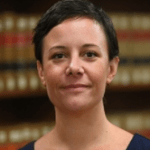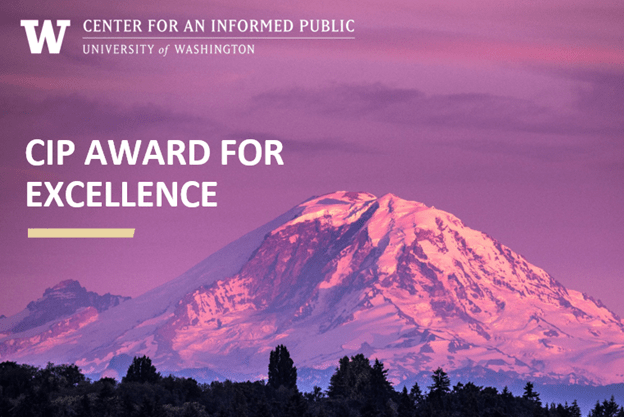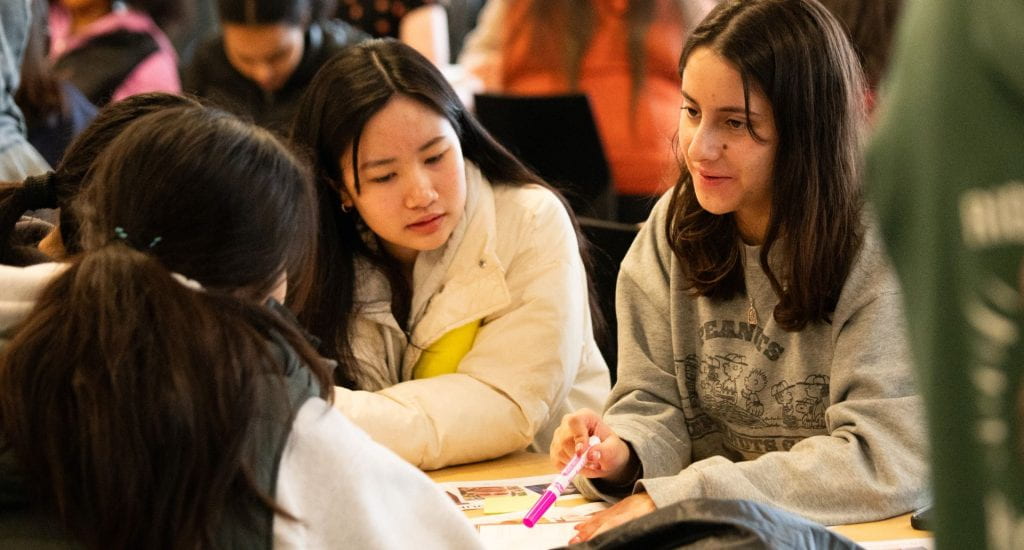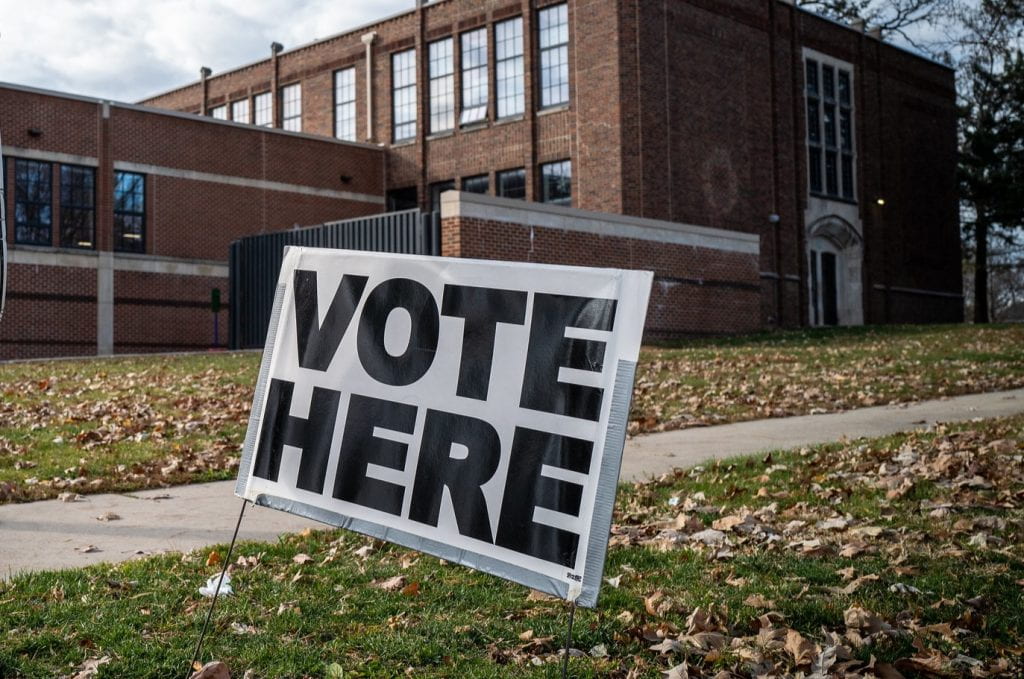The University of Washington’s Center for an Informed Public on Tuesday announced a new award program that will recognize an individual or organization that has made outstanding contributions, achievements, or bodies of work that significantly resist strategic misinformation, promote an informed society, and strengthen democratic discourse.
The CIP Award for Excellence, which will highlight those making a positive impact in mitigating the challenges of mis- and disinformation, will come with a $5,000 award for the winner. The recipient of the award will receive a commemorative plaque and is invited to visit the center and give a talk on their work. The award will recognize work in one or more of four categories: research, education, engagement, or law and policy.
A multidisciplinary selection committee, which will review and evaluate all nominations, consists of leaders in the mis- and disinformation field, including one member of the CIP Faculty. The 2021 selection committee consists of:
- Camille François, chief innovation officer, Graphika
- Kate Klonick, St. John’s University School of Law assistant professor
- Steven Livingston, George Washington University professor of media and public affairs and Institute for Data, Democracy and Politics director
- Ifeoma Ozoma, founder and principal at Earthseed
- Jevin West, UW Information School associate professor and Center for an Informed Public director
- Brandy Zadrozny, investigative reporter, NBC News
Scroll down to learn more about the selection committee’s members.
Nominations are due on March 19 by 11:59 p.m. PST. For more information about the CIP Award for Excellence, criteria, selection process and eligibility, click here.
The CIP is grateful to the William & Flora Hewlett Foundation and the John S. and James L. Knight Foundation for their foundational support for the Center for an Informed Public’s work and research, which has made this award possible.
Camille François
Chief Innovation Officer
Graphika
 Camille François works on the impacts of technology on society, with an emphasis on cyber conflict and information operations. She currently serves as the chief innovation officer at Graphika where she oversees its investigation, analyses and R&D teams and leads the company’s work to detect and mitigate disinformation, media manipulation and harassment. She was previously a principal researcher at Google, in the “Jigsaw” team, an innovation unit that builds technology to address global security challenges and protect vulnerable users. François has advised governments and parliamentary committees on both sides of the Atlantic, investigated Russian interference in the 2016 U.S. presidential election on behalf of the U.S. Senate Select Intelligence Committee, and served as a special advisor to the chief technology officer of France.
Camille François works on the impacts of technology on society, with an emphasis on cyber conflict and information operations. She currently serves as the chief innovation officer at Graphika where she oversees its investigation, analyses and R&D teams and leads the company’s work to detect and mitigate disinformation, media manipulation and harassment. She was previously a principal researcher at Google, in the “Jigsaw” team, an innovation unit that builds technology to address global security challenges and protect vulnerable users. François has advised governments and parliamentary committees on both sides of the Atlantic, investigated Russian interference in the 2016 U.S. presidential election on behalf of the U.S. Senate Select Intelligence Committee, and served as a special advisor to the chief technology officer of France.
François is an affiliate scholar of the Harvard Berkman-Klein Center for Internet and Society, a Fulbright scholar and a Mozilla Fellow. She holds a masters degree in human rights from the French Institute of Political Sciences (Sciences-Po) and a masters degree in international security from the School of International and Public Affairs (SIPA) at Columbia University. François was distinguished by the MIT Technology Review in the prestigious “35 Innovators Under 35” annual award in the “Visionary” category for her work leveraging data science to detect and analyze deceptive campaigns at scale. She was also distinguished by TIME magazine as one of the 100 next most influential people in the world, for her work protecting open societies from the threat of disinformation.
Kate Klonick
Assistant Professor
St. John’s University School of Law
 Kate Klonick joined the St. John’s University Law School faculty in 2018. She teaches Property, Internet Law, and a seminar on information privacy. Klonick’s research centers on law and technology, using cognitive and social psychology as a framework. That has led to study in the areas of decision making, intellectual property, property, communications torts, norms, shaming, and governance. It has also led to interest in robotics, artificial intelligence, and Internet law. Most recently she has been studying and writing about private Internet platforms and how they govern online speech.
Kate Klonick joined the St. John’s University Law School faculty in 2018. She teaches Property, Internet Law, and a seminar on information privacy. Klonick’s research centers on law and technology, using cognitive and social psychology as a framework. That has led to study in the areas of decision making, intellectual property, property, communications torts, norms, shaming, and governance. It has also led to interest in robotics, artificial intelligence, and Internet law. Most recently she has been studying and writing about private Internet platforms and how they govern online speech.
Klonick’s academic work has appeared in The Harvard Law Review, The Yale Law Journal, The Georgetown Law Journal, Copyright Journal of the U.S.A., Southern California Law Review, and The Maryland Law Review. She has written for popular audiences on networked technologies’ effect on social norm enforcement, freedom of expression, and private governance in the New Yorker, New York Times, The Atlantic, The Guardian, Lawfare, Slate, Vox and numerous other publications.
Learn more about Klonick’s work.
Steven Livingston
Founding Director, Institute for Data, Democracy & Politics
Professor of Media and Public Affairs, George Washington University
 Steven Livingston is the founding director of the Institute for Data, Democracy & Politics (IDDP) and professor of media and public affairs. In 2019, he led GW’s successful bid for a $5 million grant to found IDDP. He served as the director of the Political Communication Program when it was a degree-granting entity within the School of Media and Public Affairs (1996 – 2002, 2004 – 2006). In 2004, he served as acting director of SMPA, a position held until August 2006. He also founded the Public Diplomacy Institute (PDI) at GW in 2000 and served as the chairman of the Board of Directors until 2008. PDI is now the Institute for Public Diplomacy and Global Communication.
Steven Livingston is the founding director of the Institute for Data, Democracy & Politics (IDDP) and professor of media and public affairs. In 2019, he led GW’s successful bid for a $5 million grant to found IDDP. He served as the director of the Political Communication Program when it was a degree-granting entity within the School of Media and Public Affairs (1996 – 2002, 2004 – 2006). In 2004, he served as acting director of SMPA, a position held until August 2006. He also founded the Public Diplomacy Institute (PDI) at GW in 2000 and served as the chairman of the Board of Directors until 2008. PDI is now the Institute for Public Diplomacy and Global Communication.
Livingston’s research and teaching focus on media/information technology and political theory. He is particularly interested in the role of information technologies and media on governance, development, accountability and human rights. In recent years, he has been a visiting senior research fellow at the Free University of Berlin; Canterbury Fellow at the University of Canterbury in Christchurch, New Zealand; a visiting scholar at the Brookings Institution in governance; a visiting professor at the University of St. Gallen in Switzerland; and a visiting professor at the University of Cambridge in Britain. In the fall of 2016, Livingston was appointed a senior fellow at the Carr Center for Human Rights Policy at the Harvard Kennedy School at Harvard University where he served through summer 2019.
Learn more about Livingston’s work.
Ifeoma Ozoma
Founder and Principal
Earthseed
 Ifeoma Ozoma is the founder and principal of Earthseed, a consulting firm supporting individuals, organizations, and companies on issues relating to tech accountability, public policy, health misinformation, and related communications. She is a tech policy expert with experience leading global public policy partnerships, public policy related content safety development, and U.S. federal, state, and international policymaker engagement at Pinterest, Facebook, and Google.
Ifeoma Ozoma is the founder and principal of Earthseed, a consulting firm supporting individuals, organizations, and companies on issues relating to tech accountability, public policy, health misinformation, and related communications. She is a tech policy expert with experience leading global public policy partnerships, public policy related content safety development, and U.S. federal, state, and international policymaker engagement at Pinterest, Facebook, and Google.
Ozoma’s health misinformation initiatives have been lauded by the World Health Organization, the Washington Post’s Editorial Board, and the New York Times. Ozoma received the Healthy Corporate Citizen Award for extraordinary commitment to addressing the determinants of health from the Public Health Association of British Columbia in 2019. In 2020, she presented at The National Academies of Sciences, Engineering, and Medicine’s Health Misinformation Symposium and regularly presents her work in global gatherings from Geneva to Singapore. Ozoma is also on the First Draft Inc, Board of Directors; a member of the Brookings Institution’s Transatlantic Working Group on Disinformation; a member of the Washington Post‘s Technology 202 Network; and is currently serving as a juror on the Google News Initiative COVID-19 Vaccine Counter-Misinformation Open Fund.
Jevin West
Director, Center for an Informed Public
Associate Professor, University of Washington Information School
 West is an associate professor at the University of Washington’s Information School and the inaugural director of the Center for an Informed Public. He is a co-founder of the DataLab, the nexus for research on data science and analytics. West develops data mining techniques for studying the Science of Science, where he investigates the origins of scholarly disciplines, the social and economic biases that drive these disciplines, and the impact of the current publication system. Currently, his research focuses on misinformation specifically in and about science.
West is an associate professor at the University of Washington’s Information School and the inaugural director of the Center for an Informed Public. He is a co-founder of the DataLab, the nexus for research on data science and analytics. West develops data mining techniques for studying the Science of Science, where he investigates the origins of scholarly disciplines, the social and economic biases that drive these disciplines, and the impact of the current publication system. Currently, his research focuses on misinformation specifically in and about science.
Brandy Zadrozny
Investigative Reporter
NBC News
 Brandy Zadrozny is an award-winning investigative and features reporter for NBC News where she covers misinformation, extremism, and the internet. She spent 2020 tracking misinformation around COVID-19 and reporting on the disinformation campaign around the election that culminated in a siege on the U.S. Capitol. Previously, Zadrozny was at The Daily Beast where she covered politics and the internet as a senior reporter. She has an MLIS and in a former life, worked as a librarian and instructor in news, college, and public libraries.
Brandy Zadrozny is an award-winning investigative and features reporter for NBC News where she covers misinformation, extremism, and the internet. She spent 2020 tracking misinformation around COVID-19 and reporting on the disinformation campaign around the election that culminated in a siege on the U.S. Capitol. Previously, Zadrozny was at The Daily Beast where she covered politics and the internet as a senior reporter. She has an MLIS and in a former life, worked as a librarian and instructor in news, college, and public libraries.




